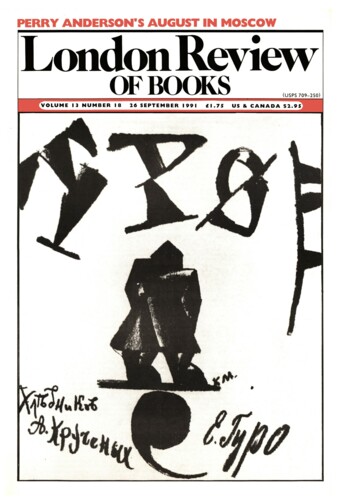Out of a job in Aberdeen
Roger Penrose, 26 September 1991
James Clerk Maxwell, a Scotsman who lived from 1831 to 1879, was a scientist of outstanding stature. Bearing his name, apart from the famous ‘demon’, is the set of fundamental equations that he discovered, governing the behaviour of electricity, magnetism and light. He also found, among many other things, the basic equation for the distribution of velocities of the molecules in a gas in equilibrium, and made other profound contributions to the statistical study of the molecules in a gas, relating to the Second Law of thermodynamics – which is what Maxwell’s ‘demon’ was all about. Earlier, he had worked out the dynamics of Saturn’s rings (mainly in 1856, showing, in particular, that the rings as a whole could not be solid annular objects, but must be composed of very large numbers of tiny bodies): work which found dramatic confirmation recently in the pictures sent back from the Voyager space-probes. In addition to his important contributions to the study of physical fields and of fluid systems composed of myriads of particles, he contributed to the study of colour vision and colour blindness, and produced (in 1861) the first ever photograph in full colour. He is now generally accepted as the greatest theoretical physicist of the period between Newton and Einstein, even if, to the public at large, Maxwell’s name seems to be almost unknown. Perhaps it says something about our cultural values that, in informed society, people may never have heard of a scientist such as Maxwell when even a British schoolboy would be considered grossly uneducated if he had never heard of Dickens.’

